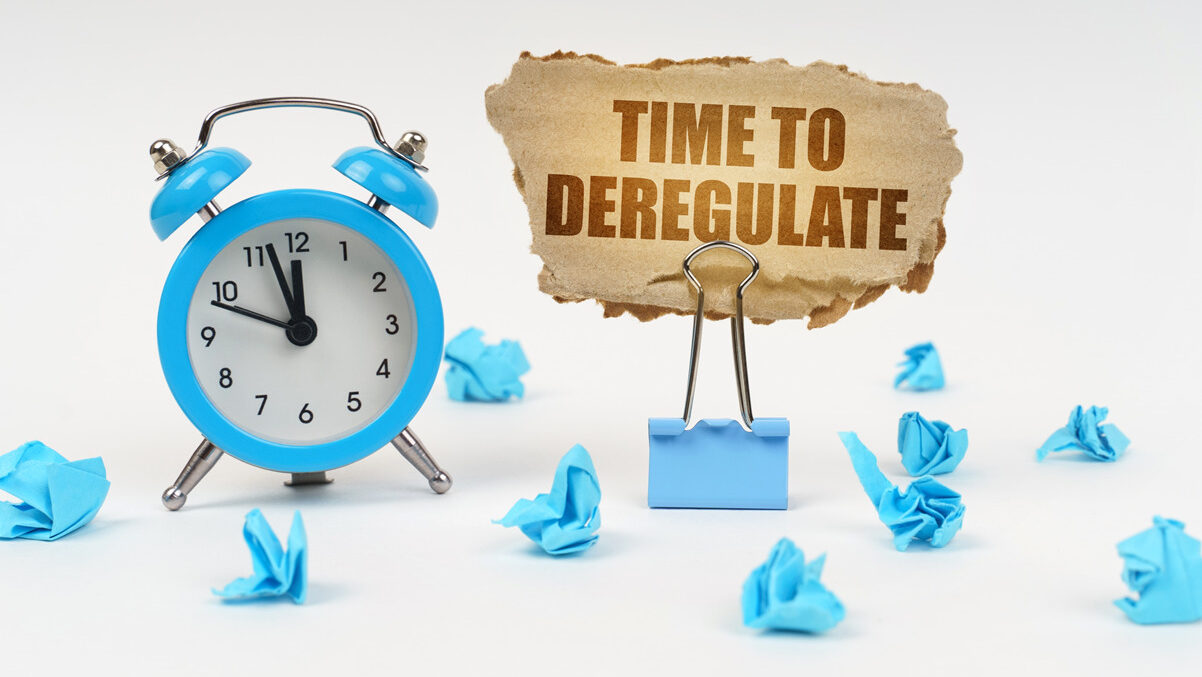
The Biden administration has emphasized “antitrust on steroids” and intrusive regulation as key elements of its economic policy. This has been counterproductive. Federal enforcers should return to prior bipartisan, less-interventionist consumer-oriented antitrust. On a parallel track, the federal government should focus on deregulatory reform to drive a competitively vibrant, faster-growing American economy.
Biden Antitrust Has Undermined American Economic Dynamism
Antitrust policy under the Biden administration has weakened, rather than strengthened, American competitive vitality.
Most notably, the federal government has focused on big antitrust prosecutions and investigations of America’s most innovative high-tech companies, including Google, Apple, Amazon, Facebook, Nvidia, and Microsoft. These firms have led the world in innovation and have greatly benefited American consumers.
These highly publicized cases, based on overly aggressive legal theories, have drawn a lot of support from less-successful companies. But there is scant showing that these suits will enhance U.S. innovation and consumer welfare (the widely recognized goal of U.S. antitrust policy). To the contrary, recent aggressive antitrust attacks on American “crown jewel” companies are likely to discourage economically beneficial risk-taking. This will deny future benefits to American consumers and weaken U.S. global competitive strength at a time of Chinese ascendancy.
More generally, the Biden administration’s antitrust enforcers—the Federal Trade Commission (FTC) and the U.S. Justice Department (DOJ)—have turned their backs on decades of bipartisan antitrust enforcement focused on case-specific fact-intensive economic analysis.
In abandoning this bipartisan consensus, the FTC and DOJ have emphasized far vaguer “big business is bad” and “economic justice” notions. This approach has led to new, highly uncertain private-sector “guidance” that is unmoored from sound economics.
A return to bipartisan, consumer-centric antitrust is called for. As antitrust professor Aurelien Portuese puts it:
[Biden antitrust policy] disparages disruptive innovation enabled by large businesses. It favors incremental competition by smaller (and sometimes less efficient) businesses. But it is radical innovation that generates the dynamic competition that benefits consumers, improves American competitiveness, and, more fundamentally, best embraces the fundamental dynamics of capitalism. Antitrust agencies should instead [reinstitute preexisting policy and] focus on the most egregious practices (i.e., cartels and collusive practices) rather than engaging in policies promoting incremental competition at the expense of innovation and consumer welfare.
The next president can easily issue a course correction by publicly affirming that the FTC and DOJ will reinstitute economically sound, consumer-welfare-centered antitrust policy.
Deregulatory Reform Is Key
The next president should also make deregulation the centerpiece of federal competition policy, to correct recent policy errors. This is key, because a growing body of scholarship finds that overregulation has slowed economic growth and reduced American prosperity.
Harmful Regulatory Expansion Under the Biden Administration
In July 2021, President Joe Biden issued his Executive Order on Competition. The order claimed that competition in the American economy had been lagging for decades—an assertion at-odds with a 2020 President’s Council of Economic Advisers (CEA) report—supposedly due to weak antitrust enforcement and market failures in a host of economic sectors.
The order’s solution was a “whole of government approach,” featuring far more aggressive antitrust enforcement (“antitrust on steroids”) and a requirement ordering federal agencies to improve the state of competition in economic sectors they oversaw. The order directed federal agencies to focus on more proactive intervention and heightened regulation as a means to deal with perceived competitive problems in certain industries.
But an economic analysis of the executive order by myself and economist Andrew Mercado revealed that:
[T]he order fail[ed] to recognize that certain federal programs are the cause of competitive harm, not its cure. Many of these programs undermine competition and distort markets, and some even establish federally backed monopolies that are immune from antitrust oversight. These monopolies raise prices for consumers, reducing American economic welfare.
In particular, anticompetitive federal subsidies and public restraints have inefficiently reduced competition in such sectors as health care, U.S. agriculture, ocean shipping, trade, energy, and mail delivery. The order said nothing about these serious problems. The order also did nothing to slow the growth of regulatory burdens across the economy.
Regulations directed at correcting market failures are often drafted in a manner that unnecessarily favors incumbent firms. Such rules also too often excessively micromanage business conduct, distorting business decisions far more than is necessary to “perfect” markets. The bitter fruits of flawed rulemaking are slower economic growth and unnecessary costs imposed on the public.
University of Chicago economics professor Casey Mulligan (a former CEA chief economist) has analyzed and quantified the expansion of U.S. regulatory burdens in recent years. In June 2023 congressional testimony, based on empirical research by him and other economists, Mulligan estimated a host of costs associated with regulatory initiatives by the Obama, Trump, and Biden administrations. He found that, through 2022, the Biden administration had added annual regulatory costs of $617 billion based on rulemakings alone ($5,000 per-household per-year for rules finalized in 2021 and 2022). He added that continuation of the 2021-2022 pace for eight years would yield an aggregate per-household regulatory burden of more than $40,000. In contrast, he estimated that application of President Donald Trump’s deregulatory approach, as opposed to President Biden’s regulatory approach over eight years, would have yielded aggregate savings of up to $80,000 per-household.
These dramatic increases in new regulatory burdens may well reflect the Biden administration’s deemphasis (perhaps even abandonment) of regulatory cost-benefit analysis in federal rulemaking, which had enjoyed bipartisan acceptance by presidents since Ronald Reagan. Whatever the explanation, American households and the American economy have been the losers.
A Deregulatory-Reform Prescription
A new president will take office next January. He or she will be in a position to issue a course correction to promote American economic growth through deregulatory-reform measures.
For starters, the next president would be well-advised to rescind Biden administration executive orders and regulatory guidance that weakened cost-benefit analysis. The president should simultaneously reissue Trump administration orders on regulation. These include a January 2017 order that required federal agencies to rescind two regulations for each new one issued and to impose zero new net regulatory costs on the economy.
In addition, the next president may wish to emphasize a three-pronged reform program, involving:
- Adoption of a “regulatory budget” that places a limit on the total cost of regulations that each federal agency is allowed to impose;
- Recalibration of regulatory cost-benefit analysis to make it more effective in estimating regulatory burdens (and extension of cost-benefit analysis to independent federal agencies); and
- Establishing a process to identify anticompetitive market distortions in the regulatory-review process, so that they can be avoided and, ideally, eventually phased out.
Prior federal deregulatory reform has strengthened the American economy and has enjoyed strong bipartisan support. Hopefully, the next president will keep this in mind and lend support to a renewed reform program, to strengthen the U.S. economy and raise the welfare of the American people.




